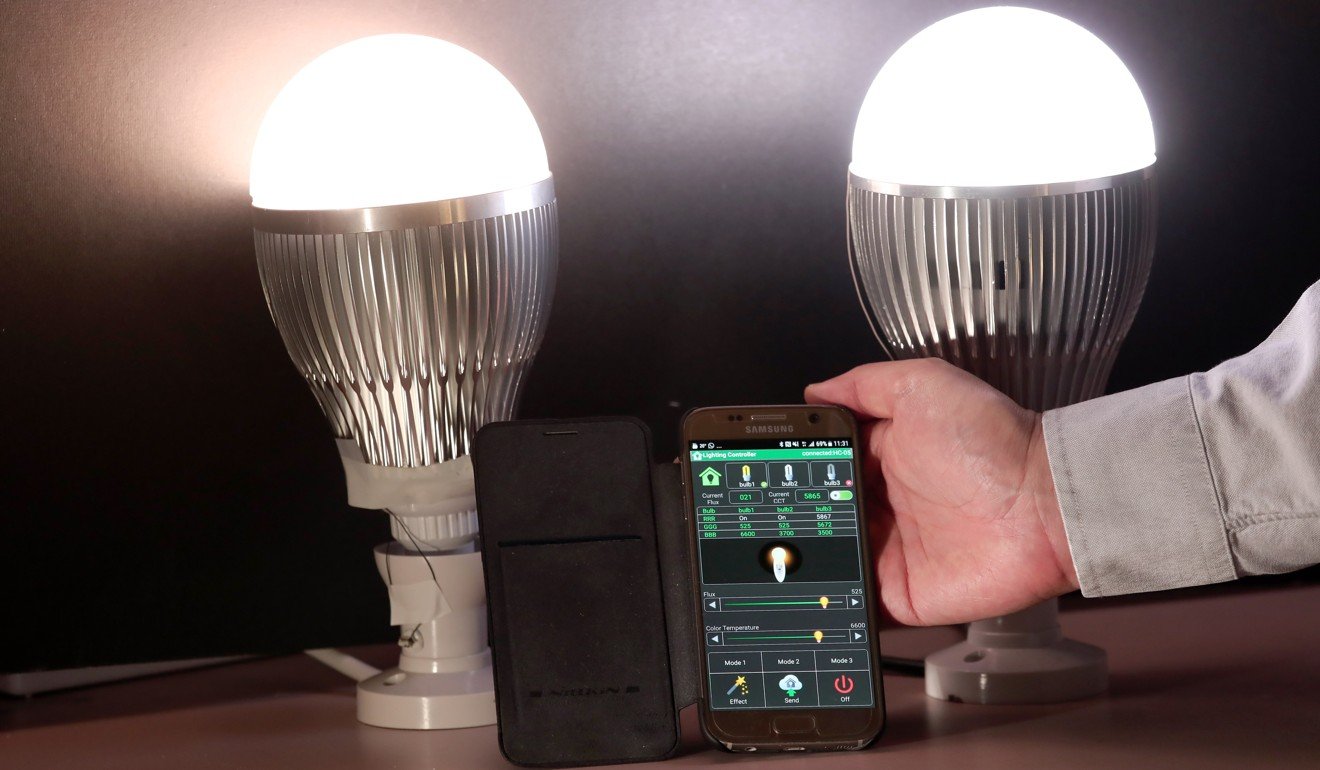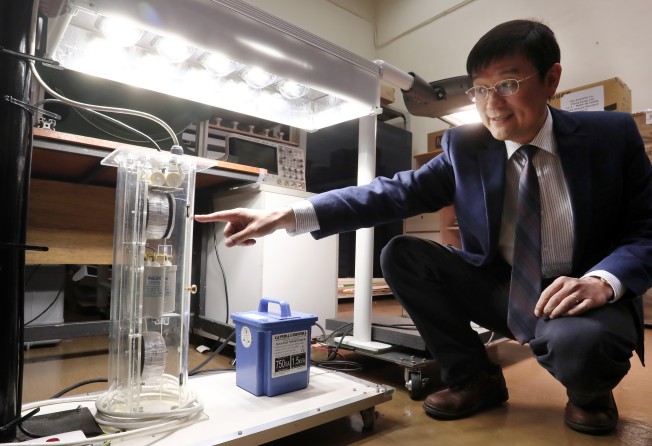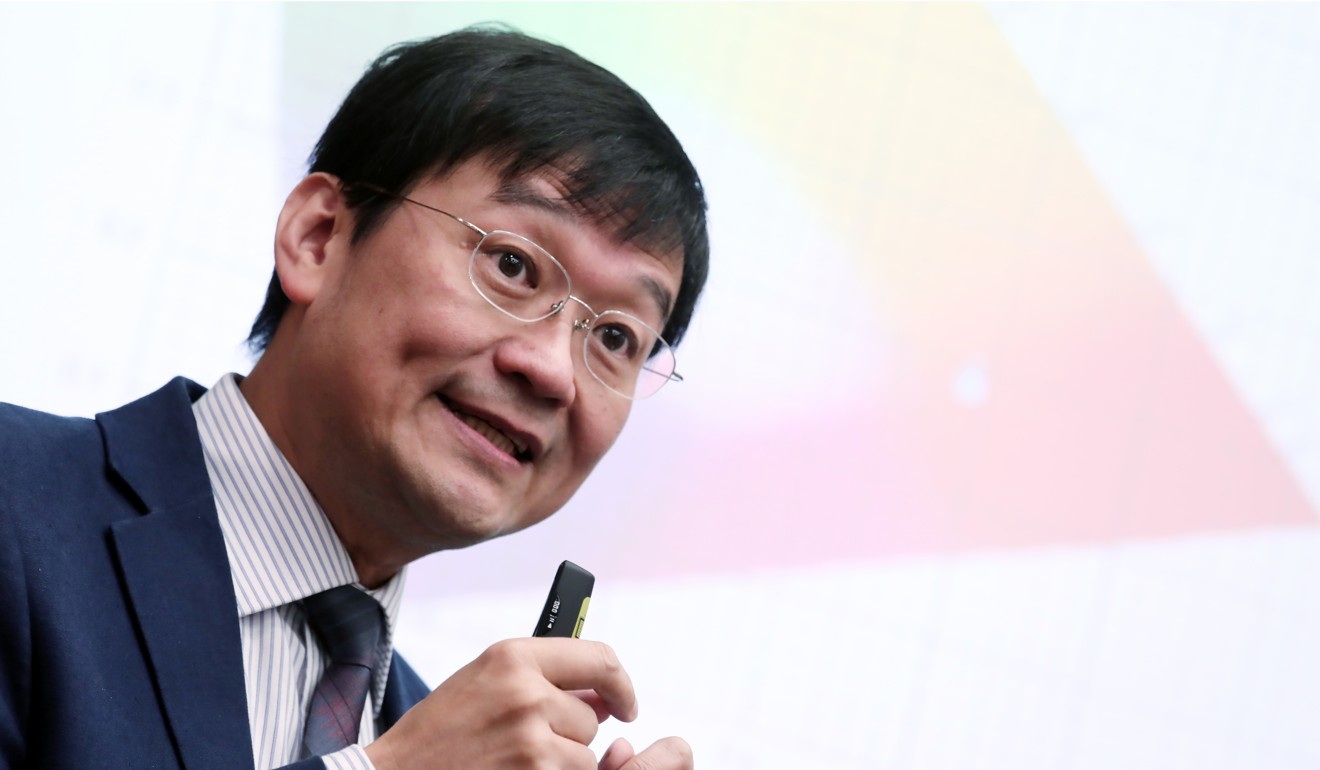
HKU researchers unveil cost-saving LED system they claim is recyclable and can last 10 years
HKU researcher claims ‘disruptive invention’ is energy-efficient and won’t be welcomed by lighting companies as it will reduce sales

Researchers have developed a new light-emitting diode street-lighting system that can last more than a decade and when burned out, allow nearly all its materials to be salvaged as raw material.
Lead researcher Professor Ron Hui Shu-yuen, chair of power electronics at the University of Hong Kong’s faculty of engineering, claimed it was the world’s only sustainable LED street lamp that could be bright, energy-efficient, long-lasting and recyclable.
“It’s not going to be welcomed by [lighting companies] as it means the same LED lamp can be used for 10 years without needing to be replaced, thus reducing sales” Hui said. “It is what I’d call a disruptive invention.”

The products have been tested in hundreds of street lamps across Heshan in Guangdong province, with an additional 8,000 due to be replaced in the mainland city. The previous trial found a “zero failure rate” over a two-year period.
Current LED street lights have an average lifespan of just three years and are highly susceptible to the elements including damage from heat, thermal shocks from extreme temperature swings and lightning strikes.
As a result, many cities such as Hong Kong had considered it cost-inefficient to replace street lights with the semiconductor system.
Unlike most LED technological developments in the past that focused on improving chips or filaments, Hui’s team concentrated on the driver, a device that converts incoming AC power to a proper DC voltage. The driver also regulates the LED’s current flow.
The LED system costs the same as regular street lamps and can reduce energy savings and thus power bills by about 35 to 40 per cent.
The system is based on Hui’s own breakthrough “photo-electro-thermal theory for LED systems”, which he says is the first to unify interactions of heat, light, electric power and colour in one mathematical framework.

The five-year project was funded by the government’s Research Grants Committee.
Hui said the technology was based on a “simpler, more reliable design” hearkening back to the high-pressure sodium lamps developed in the 1940s that featured fewer semi-conductors. This made them less susceptible to damage from the elements.
“Using too many semiconductor components is fine indoors, but outdoors, lightning and thunder can cause electromagnetic waves that could send currents through semiconductor materials, damaging their electronic components,” he said.
Up to 85 per cent of the device’s components including copper wiring, and the transformers can be recycled, unlike traditional LEDs which leave behind large amounts of hazardous electronic waste.
Hui said energy-saving bulbs on the market were not necessarily environmentally friendly because the process of extracting materials and the energy used to manufacture them could do harm. Their materials might not be recyclable either, he added.
A government trial launched in 2009 found LED road lights were better than existing sodium lamps of comparable wattage in terms of energy efficiency, colour and reliability. However, the city opted not to replace the city’s street lights.
The Highways Department announced earlier this year that local street lights would be steadily replaced with a more energy-efficient LED system.